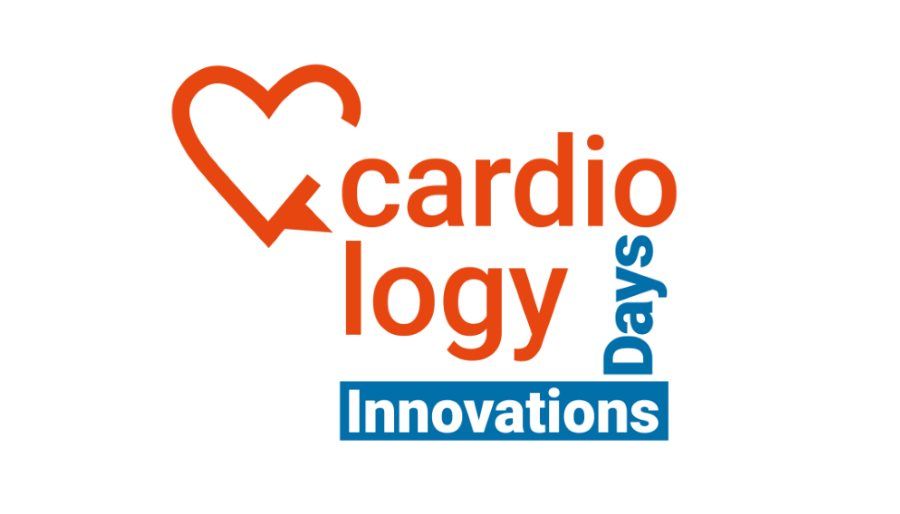
Experts at Cardiology Innovations Days: Polish cardiac patients can live better and longer
Thanks to innovative technical and technological solutions in the treatment of heart disease, Polish patients can live longer and with a better quality of life. It’s within our reach – we have great potential, but regulatory changes must keep pace with technological advances, said experts at the first edition of Cardiology Innovations Days. Clinicians, biotechnologists, engineers and health policy makers from Poland and many European countries discussed the challenges of modern heart disease therapy in Wroclaw on June 7-8.
– Heart disease has for many years invariably been the number one killer ofójca Polaków. The cause of the 47 percent. deathóin Poland are the aftermath of the chorób cardiovascular. In Western European countries, this wspófactor is 10 points loweróin percent. We can and should take advantage of the experience of our neighborsóIn and, analyzing the róThe differences in patient accessów to effective therapeutic methods, effectively reduce the number of osób, które due to diseaseób of the cardiovascular system complain of poorer quality of life and die prematurely. Importantly, we are developing and refining our own Polish innovative solutions, whichóre has great potential to increase the effectiveness of diagnosis, therapy and care of cardiac patients. There is no doubt that it is worth betting on them so that as many patients as possible can benefit from themów – mówi prof. Piotr Ponikowski, Prorector for. Science of the Medical University of Wroclaw, wspóhe organizer of Cardiology Innovations Days.
"Innovation is an indispensable part of medical progress. Telecardiology, hybrid imaging or new technologies in electrocardiology are just some of theóre of the directionóin research, in któof which we are pioneers globally. Cardiology in Poland stands at the highest world level, and you show every day that the impossible is possible. It is in your work that the quote taken from Wayney is best realized’Gretzky, according to whichórego „you should go where the puck is going, not where it is at any given time”. I would like us to maintain this direction, proving to our patients that cardiovascular disease is our coóThe first edition of the event was dedicated to the use of the latest technological solutions in the prevention, diagnosis and treatment of diseasesóin the most modern way possible" – wrote in a letter addressed to the participantsóat Cardiology Innovations Days Minister of Health Lukasz Szumowski.
The biggest challenge: heart failure
The first edition of Cardiology Innovations Days is an event organized by the Wroclaw Medical University and the casusBTL Group, at which theóre consisted of a conference, a hackathon – a marathon for designing innovative medical solutions using IT – and a workshop for start-upsów. The first edition of the event was dedicated to the use of the latest technological solutions in the prevention, diagnosis and treatment of diseasesób cardiovascular system. An area of particularólarly interested participantów was to find effective solutions to support early diagnosis, effective therapy, comprehensive care and rehabilitation of patientsów with heart failure, called an epidemic of the 21st century.
– New therapeutic opportunities are a particularóln the so-called „white spots” – areaóin whichórych we observe a deficit of effective solutions to the growing challenges and needs of the. Undoubtedly, such an area in cardiology is heart failure, on which heónearly 1 million Poles suffer from heart failureóThe number of new cases of heart failure in Poland is growing, with 220,000 new cases diagnosed every yearóin this condition – mówi Adrian Szulczynski, president of the casusBTL Group, initiator and wspóhe organizer of the project.
– Heart failure is a huge – and the ever-growing – a social, systemic and economic problem. The disease must be dealt with by patients, their loved ones, the health care system and the state budget. With limited resources available within the health care budget, it is necessary to select the most effective and at the same time cost-effective therapeutic methods. Technical and technological innovations in the field of cardiology have great potential in this context – especially in the long term – adds Prof. Piotr Ponikowski.
Draw on experience
The first edition of Cardiology Innovations Days was attended by many expertsóin the z rótion of the countryóin Europe, amongód them m.in.: prof. Stefan Anker of the Medical University of Berlin, whoóry gave a lecture on innovative solutions in implantable devices in cardiology, prof. Friedrich Koehler of the Medical University of Berlin, whoóry presented the concept and path of implementation of a remote care management program for heart failure patients, prof. Roberto Corti of Zurich, który omóHe addressed issues related to hybrid imaging for interventions in structural heart disease, and prof. Giuseppe M.C. Rosano of La Sapienza University in Rome, whoóry gave a presentation on innovation management and zrósustainable development in cardiovascular medicine. The experts pointed out that the innovations implemented in their countries have proven to be therapeutically effective and efficient in terms of long-term cost reductionóin patient care.
New directions, Polish potential
Amongód of innovative solutions, on whichóre during the Cardiology Innovations Days highlighted theócono particularóAmong other things, the Polish PocketECG project, a diagnostic technology for the remote detection of cardiac arrhythmias, especially atrial fibrillation, has received considerable attentionów – one of the mainówn causes of ischemic stroke mózg. The technology used in the device is based on signal processing algorithmsóin biomedical to digital. According to expertsów this solution has significant potential to reduce the life-threatening sequelae of atrial fibrillationów.
Another technology under discussion is cardiac contractility modulation therapy (cardiac contractility modulation – CCM), used to treat chronic heart failure. In this technology, electrical impulses are sent to the heart via electrodes, whichóre instead of causing additional contraction of the heart, they increase its strength and thus the efficiency of pumping blood through the heart. Special electrical impulses are sent by the implanted device at a specific phase of the heart cycle, krótko after the onset of its contraction. The device sends electrical impulses, whichóre increasing the efficiency of the heart’s blood pumping without affecting its rhythm.
Another innovative therapeutic solution in the treatment of heart failure is sacubitril/valsartan – the first drug in a new class of drugsóin ARNI (neprilysin inhibitor and angiotensin receptor blocker), whichóry reduces the burden of a failing heart. The effect of the medicinal preparation is to strengthen the protective systemsóin the neurohormonal heart and róInhibiting the harmful effects of the renin-angiotensin-aldosterone system. According to an expertów therapy has great potential in the treatment of symptomatic chronic heart failure with reduced ejection fraction.
Study, developój and adequate regulations
– The search for and implementation of innovative therapies and tools in the area of heart failure will undoubtedly help change the face of all Polish cardiology. These implementations are inevitable due to the need to reduce the negative effects of theóin patientsób cardiology in social and economic terms – mówi prof. Piotr Ponikowski. – However, innovative technological solutions are not enough for success. They need to be implemented, and for this, systemic changes are needed, especially in the regulatory area. Only with adequate regulations will it be possible to provide faster access to patientów to new, effective therapeutic solutions – adds prof. Piotr Ponikowski.
As experts note, it is optimistic that the goodwill of Prime Minister Mateusz Morawiecki, Minister Jaroslaw Gowin and Minister Lukasz Szumowski, whichóers unanimously declare making
of Polish research and innovation a priority development direction. Polish research centers are already conducting many international and interdisciplinary projectsóin scientific research in the area of health.
An interesting example is the AMULET project, led by the Wroclaw Medical University and funded by the National Center for Research and Development. AMULET is directed at creating a system of care for patients with heart failure, based on the use of modern methods of non-invasive hemodynamic evaluation of the cardiovascular system (m.in. heart rate, blood pressure, chest and whole-body hydration status) and telemedicine tools.
Wroclaw Medical University is also the birthplace of the idea of personalized e-coaching. With technologies similar to the Internet „tracking” useróin order to offer them age-appropriate and interest-appropriate content, solutions are being developed through which toóhe patient will receive messages according to the severity of his disease, his current well-being and symptomów. As a result, patients and their families will be able to more effectively control theirój health status.
– Wroclaw Medical University strives to create innovative solutions in the field of medical sciences, drawing on its own and other universities’ achievements in life sciences, life sciences and engineering sciences. We believe that the combination of interdisciplinary experience and skills will result in the development of innovations, które will be effective in the diagnosis and treatment of the most common diseases – including, above all – chorób of the cardiovascular system. It is important that new solutions can be efficiently implemented. During Cardiology Innovations Days, we talked a lot about what it takes to do this – mówi prof. Piotr Ponikowski.
– Undoubtedly, the translation of the resultóin basic research into clinical practice requires the involvement of a great many playersów, as well as adequate funding, legislation and health system design. Hence, for the system of support for cardiovascular innovation to work effectively, it is necessary to involve all stakeholders in the design of solutions, regardless of the stage at which theówhich they join in the path of translating scientific research into the clinic – mówi Dr. Iwona Cymerman of the Center for New Technologies at the University of Warsaw.





